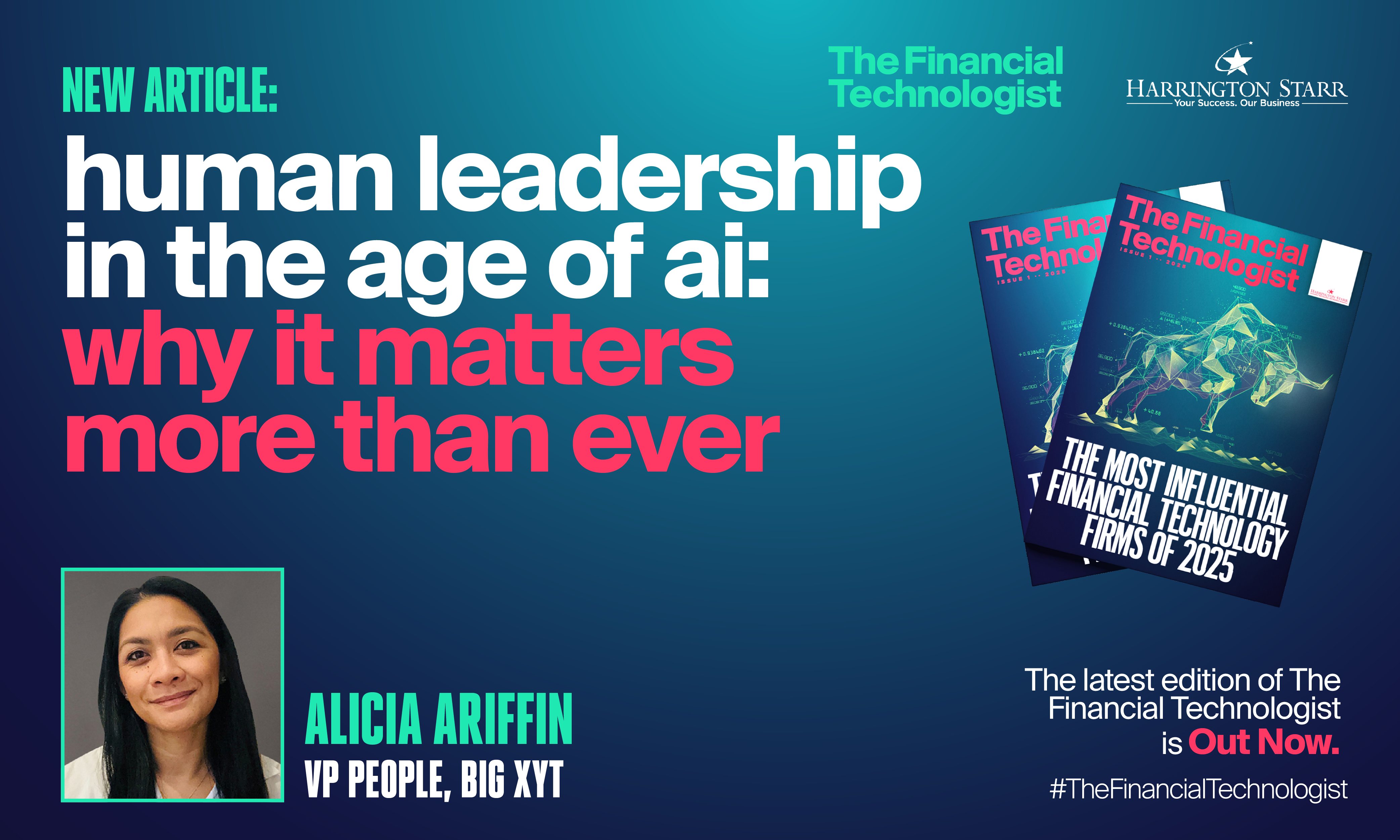
Download your free copy of the latest Financial Technologist magazine here.
Human Leadership in the Age of AI: Why It Matters More Than Ever
When we think of great leadership, certain qualities naturally come to mind—someone who inspires, unites, and leads by example. But in today’s rapidly evolving world, leadership is no longer defined solely by strategy, execution, or authority. It is about human leadership—the ability to guide with emotional intelligence, empathy, and authenticity.
The Heart of Human Leadership: Emotional Intelligence
At the core of human leadership lies emotional intelligence, an indispensable skill in an era of rapid technological advancement and societal change. Emotional intelligence—the ability to recognise, understand, and manage one’s emotions while navigating those of others—enables leaders to foster trust, enhance communication, and build deeper, more meaningful relationships.
Consider a scenario where a team member is struggling. On the surface, they may appear fine, but a leader with high emotional intelligence will notice the more subtle signs of distress. Rather than ignoring the issue, a human-centric leader fosters open dialogue, may offer flexible working arrangements, and provides support to help employees navigate personal challenges. This approach cultivates a culture of trust, where employees feel safe expressing concerns rather than suppressing them.
The impact of such leadership extends far beyond individual well-being. A 2021 study by the UKG Workforce Institute, based on a global survey of 4,000 participants, found that 74% of employees perform better when they feel heard. When employees feel valued and understood, they are more engaged, productive, and committed to their organisation’s success.
The Role of Human Leadership in the Age of AI
As AI and automation continue to transform the workplace, the need for human leadership has never been greater. While AI enhances efficiency and enables data-driven decision-making, it also raises concerns about job security and the future of work. Leaders who prioritise a human-centric approach will be instrumental in bridging the gap between technological advancements and employee well-being.
A World Economic Forum article, Leading with Purpose: Why Human-Centric Strategies Are Vital in the AI Era (Jan 17, 2025), states that the most effective leaders will be those who “build bridges to the future, instilling confidence and assurance amid fear and uncertainty.” These leaders will cultivate workplaces where technology enhances, rather than diminishes, human creativity and connection.
For example, AI can assist HR professionals in handling employment law queries or streamlining administrative tasks, but it cannot replace the nuanced, empathetic conversations that define human interactions. Employees navigating workplace challenges may benefit from AI-generated guidance, but they still require the reassurance and emotional support that only a human leader can provide.
Building a Future with Human-Centered Leadership
In an increasingly automated world, leadership is not just about managing teams—it is about protecting and enhancing the human experience at work. It is about understanding and celebrating the fact that everyone is unique in their own way, and that different people will work and flourish in different ways. To support this, leaders have to craft and create environments where employees feel valued, ensuring technology serves as an enabler rather than a threat, and prioritising relationships built on trust and empathy. Human-centered leaders will also play a crucial role in upskilling employees, equipping them to embrace AI confidently and help to close any skill gaps instead of widening them.
As we move forward, human leadership will be the defining factor that separates great organisations from merely good ones. It is not just about adapting to change—it is about leading with purpose, compassion, and a deep understanding of what it means to be human in an increasingly technological world.
By Alicia Ariffin, VP of People, big xyt
Download your free copy of the latest Financial Technologist magazine here.






